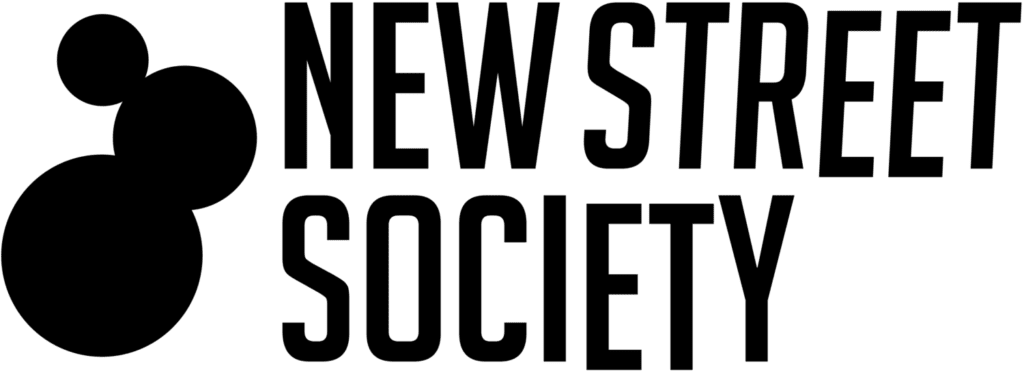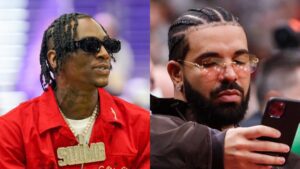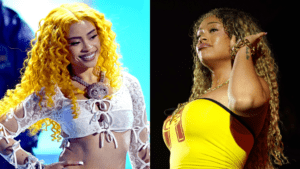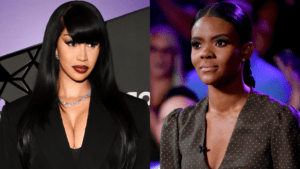Wave In 2021 And Beyond: The Present And Future Of The Movement – FUXWITHIT
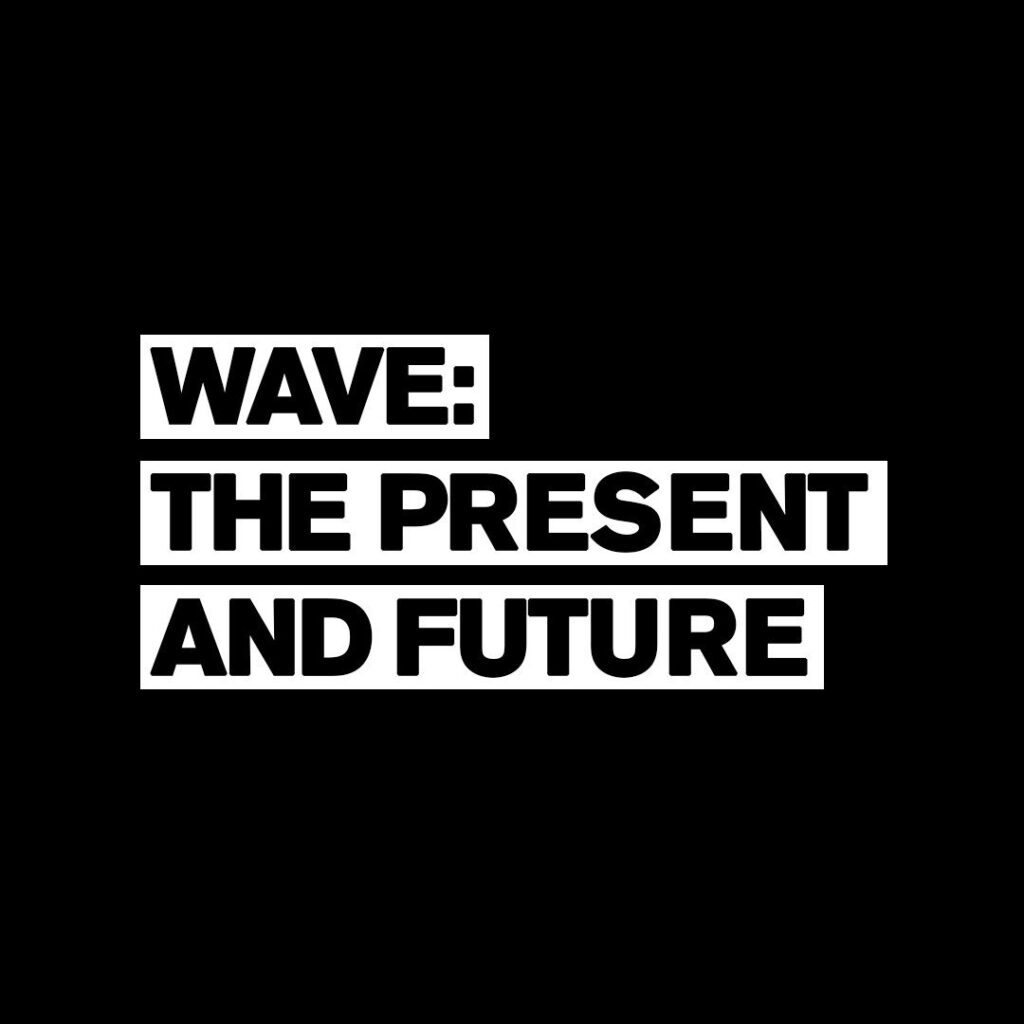
Here we are! After the first part dedicated to the exploration of the roots and origins of wave, we’re about to continue our journey with our eyes stuck to the present and, above all, to the bright future of this genre and its culture. The pandemic dealt a bad blow to the entire music scene, but thanks to its digital nature the scene has continued to thrive throughout 2020 as well. However, unlike in the previous years, the growth in the last 12 months has been more explosive and less homogeneous and has mixed up the balance of the whole movement. Looking to get a deeper insight into the current situation and trying to understand what the future holds for wave, I have brought together some of what I believe are some of the key figures in the scenes, who have experienced these changes firsthand from many different points of view. In addition to Kareful (Liquid Ritual, UK), who has helped with the first part of this series, I connected with Fyoomz (vibe.digital, US), Deadcrow (NL) and IMMINENT COLLECTIVE (RUS).
While reading the interview, I highly suggest you listen to Kareful’s History of Wave Mix.
In an interview on The Playground alongside Noah B, Just Connor stated that considering wave a “genre” is a misconception, and that (in his opinion) wave should be considered a mindset and a community. For this reason, I’d like to start with the mother of all questions: what exactly is WAVE? Is it indeed a music genre? A movement? A mindset?
Kareful: This is a very good question. I have thought a lot about this. I think that because in the early days the wave genre was so loose, I would have considered it to be more a name of a musical movement or collection of artists instead of a genre name. The problem we had was that some stuff sounded really ambient and dark and some other stuff sounded really hard and clubby. But now with the hardwave / wave “split” that’s less of a problem and It can be considered just a genre with two very specific camps for producers.
Fyoomz: It’s all of those things and more. It began as a small but diverse community of producers and listeners around the world that has always been welcoming. The feeling of the music is what captivated me, but the inclusivity of the scene is the thing that’s kept me here. There’s a feeling of goodwill and supportiveness in wave which gives weight to the idea that it could be a mindset. This feeling is something I’ve always tried to amplify to the best of my ability, given that this is ultimately a wing of the music industry, and I am running a record label where I often have to make tough decisions about who to release or to book for shows. While major EDM artists giving us plays, bigger show bookings, and official genre recognition on Spotify is a major plus, it is not essential for us to keep moving forward. We don’t need industry recognition to support ourselves, as we’ve been happy to do our thing for the last 5-6 years now, but it is helpful. In that way, I see it as a movement.
Deadcrow: I think it’s both? A genre can’t exist without its own movement, in which a majority of the people have a similar mindset. Personally, I don’t like reading too far into it though, I think wave is definitely a genre, a genre that has become pretty recognizable through time if it wasn’t already.
IMMINENT COLLECTIVE: For us wave is the most significant and remarkable phenomenon in the current music landscape. We witnessed its birth and growth entirely. Right now we’re doing our best to help the genre grow further and become more popular. Yes, I agree that the genre doesn’t have an apparent structure that helps identify it. The gist of it is based on borrowing different elements from other genres. However, this genre is easily distinguishable, since it’s drastically different from those that it borrows features from. It sounds unique and fresh. I also want to say that, actually, wave has one distinct feature – a deep and inexplicable “wave atmosphere.” It’s tangible every track and it’s fantastic. Because of it, you really start to think that it’s a whole singular culture and community that feels the beauty and aesthetics of the genre.
Following the momentum started in 2019, I believe last year can be considered the biggest year for wave in terms of popularity. Would you agree? Have you seen a sensible growth of fans or a shift in the type of followers?
Kareful: I think wave has always been steadily growing. I think it was popular in a different way years ago. It was more popular in the UK and less popular elsewhere. And now we’re seeing wave basically be more popular also everywhere else but less relevant in the UK instead. So it’s a funny one. So I guess it’s sort of like, it’s already had several ups and downs in its history. In 2020 the hardwave stuff started to get a lot more attention on YouTube, which meant a lot more stats. We’ve seen people that really blow up on Spotify and start making an actual career out of this now. So yeah, I would say 2020 was probably one of the most successful year for a lot of the artists. I’ve seen a lot of my friends go from pretty much underground acts with a few thousand followers to make a decent living and that’s amazing!
Fyoomz: 2020 was on course to see exponential growth in wave across the board before COVID-19 hit. The fact that we haven’t been able to play in the clubs and at music festivals definitely stalled some of that momentum. That being said, we still are seeing larger labels and outlets like Trap Nation and Trap City embrace the harder side of the genre. Wave is starting to bleed into the mainstream and get popular. Certainly the growth in Spotify streams, follows, and likes is huge. I don’t know if there is massive growth across the board for everyone, but so far it is heartening.
Deadcrow: The growth this year has been insane. I personally felt like wave was a bit dead in 2018 and a little throughout 2019, which also caused me to go back to other genres that I like. But when I started hearing what guys like Skeler and Juche were making, to me it felt like there was new life being breathed into it. It sounded exciting again, and I think that reflects onto how big the genre has gotten this year. I don’t think there has been a “shift” in followers, there are just a lot of new followers that come from a different musical background. The genre isn’t just sad boy music on SoundCloud, it exists for the big stages now as well. That being said, I love seeing that people are still making the softer, “classic” sound as well as the new, harder stuff.
IMMINENT COLLECTIVE: I’d say that 2020 was more of a breakthrough for hardwave rather than wave itself. Of course, wave is growing each year too, but simply not as fast. The key factors that have contributed to this exponential growth are, in my opinion: the tremendous support of the hardwave audience, the influx of new fans from many different trap and EDM communities, and the participation of huge projects like Trap Nation, Trap City, and Tribal Trap.
A harder version of the genre was bound to happen, at least, I personally always wanted it to happen.
-Deadcrow
A theme that is closely connected with this vigorous growth is the critical debate between the wave and hardwave communities. Why do you think the two are perceived so differently despite having so much in common?
Kareful: I don’t think there’s much of a difference between the wave and the hardwave communities. After all, the two styles have always been tightly linked and many fans and producers live both without problems. One is a bit more likely to be played in the club, the other one is most suitable for a home listening. One is a lot darker and the other is a little bit more commercial, but the blend for me has been pretty smooth. A lot of us have been making the wavy stuff for like four or five years now. I think it’s natural that some of these artists are just evolving. A lot of them have been learning DJing and or have been DJing over the past few years as well. So it just makes sense that they are getting into tracks that can be played in the club, at festivals. I really think there isn’t much of a difference. I think the main beef a lot of producers and fans have with hardwave is just that in the early days of wave, producers sounded so different and people had more unique styles. People were getting popular by doing something different. Now, with the hardwave shift and the more EDM influence the demand has changed and seems like a lot of people are sticking to a certain style to appeal to mainstream curators, which I suppose probably diluted a lot the interesting new productions that would have been thriving if it wasn’t for this. That being said, a lot of the music is still really good. There are plenty of artists doing really cool hardwave stuff that is definitely unique. I guess it just depends how much time you actually put into digging deep into the sounds. As in every single other music genre, on the surface everything can sound a little bit watered down.
Fyoomz: To some degree this is the story of every bass music genre. Dubstep started as a minimal, meditative experience in the UK and migrated to the hardest festival music out there over the course of about a decade. Wave is absolutely in a similar stream of evolution. I don’t want the genre to stay stuck in 2016, but it’s important it not to lose sight of its roots either. Luckily, the biggest artists in wave all make a variety of stuff, and if they are leaning more into “hardwave” these days (to me it’s all wave) they still are putting out the more traditional type tunes as well. For me, variety and change is always something to strive for.
Deadcrow: I wish people didn’t create this divide. Most of us making either wave or hardwave (or both) are still the same people, we’re still from the same community. A harder version of the genre was bound to happen, at least, I personally always wanted it to happen. The discussion to me is pointless, it’s unnecessary and it creates a divide that doesn’t have to be there.
IMMINENT COLLECTIVE: There are many fundamental differences, that’s why it’s no surprise that they’re recognized differently. Hardwave came a long way from the core wave aesthetic. I’d say it’s a more commercial, aggressive, dance-oriented, and futuristic successor of wave. Most of these new fans don’t know the ideas and messages that were at the core of the wave community and then they created their own. I think it’s great! It happens to all the genres. At the beginning, they have a certain kind of community, but years pass and trends shift, communities change and the music changes as well. Once again, hardwave is not going to negatively impact the wave movement. On the contrary, I think it’ll introduce more and more listeners to the original wave sound.
I think it’s a misconception that hardwave is replacing wave.
-Kareful
Do you think that this division has the potential to negatively impact the development of the movement, especially when it will come to live events?
Kareful: No, I don’t think so at all. Actually, if you look at the Arcadia shows that happened in Russia, the lineup was a mix between dark chill and high energy producers. You had acts such as hyperforms, skeler and me who are a bit more hype and then, on the same line-ups, you had artists like vacant, brothel and barnacle boy, which are definitely more downtempo. So I think it’s a misconception that hardwave is replacing wave. When it comes to events, I think it’s good to have lots of different styles together so you can create a roller coaster in the curation of the night. You have those darker producers earlier or later on and you have the more hyper DJs in the middle. I mean, it just makes sense. I think there will always be a place for everyone, right now people are too defensive and just don’t realize this.
Fyoomz: Just the opposite. I predict wave will have a massive influx of fans in the coming years. The bandwagoners will jump on, enjoy their ride with our genre and our sound and then move onto the next thing, leaving just the true fans of wave behind, which is likely when we’ll see some of the most exciting developments of the genre.
Deadcrow: If we all work together it won’t.
IMMINENT COLLECTIVE: Without any doubt live events is where the two feel more distinct. Soon hardwave will be present on all the global music festivals and this will lead it to be more even popular. But again, I believe that wave will benefit greatly from this scenario as it will receive a lot of exposure too.
Talking about live shows, in the past years we’ve already seen highly successful examples of shows, tours and even festivals, but in a post-pandemic world, do you think local scenes will be strong enough to support a more consistent shift from digital to IRL?
Kareful: I’ve no idea, in London and in the UK it seems to be pretty fucked at the moment. To be honest with you, I have no idea when events are going to be running again. And when they are, probably these venues are going to not take any risks. They’re probably just going to play safe and push the genres that they know are going to sell tickets. That is definitely worrying. We had huge issues in London with lots of clubs closing down and stuff even before Covid. I think the pandemic is pretty much the final nail in the coffin for a lot of the clubs in the UK. Luckily we’ve all these new festivals and events all around Europe, Russia and America. Thanks to this worldwide presence, once we’ll be able to travel again I believe that we actually might see the wave live scene growing after all.
Fyoomz: Wave will suffer the same fate as any genre in the clubs and festivals. If society reopens, wave will continue to grow and we’ll start in where we left off.
Deadcrow: I don’t think it’ll just bounce back to normal right away. A lot of venues are closing, and people won’t have budgets to throw shows like they had before. Local/underground shows will happen again, but I wouldn’t count on it happening too soon.
IMMINENT COLLECTIVE: I think we’re going to be fine. People are waiting and eager for large live events after the lockdown, and event organizers know that. Besides, I think that everyone had a decent break during this time, and made enough money to come back. I’m already planning the upcoming ARCADIA II festival without any fears.
no outside outlet or big artist will determine the fate of our genre. We will do that ourselves.
-Fyoomz
As said before, in the past couple of years the awareness around Wave has grown exponentially and in 2020 we’ve seen some absolute giants in the bass music curation and publishing game, Trap Nation and Tribal Trap for example, jumping on the train and releasing full compilations other than just supporting tracks on their channels. How are you feeling about these mainstream players joining the party and especially about the way they did it?
Kareful: It’s just a natural progression. We always knew the YouTube channels would eventually start getting involved. They actually have already been supporting us for a while. In the beginning it was with random uploads here and there on Bass Nation or Trap Nations for example, but they wouldn’t really know what we were doing. Seeing them jumping in the scene today is totally fine. Some of them have been pretty respectful, others not so much, but I think it’s positive and I’ve not had any personal bad experiences with any of these. I won’t name anyone but, of course there’s going to be problems and there’s going to be people like spreading rumors or talking shit on Twitter about certain things. I saw that some producers were pretty upset and saying that when Trap Nation jumped in, the scene died. That’s not true. It’s probably the exact opposite. They definitely injected a whole load of new fans into the scene, which I think is super important. The main problem,I think, it’s that they are interested in just the hardwave sound and not as much on the wave style. A lot of people are probably upset because their preferred style of wave isn’t getting as much attention. Obviously, when style gets more attention, it’s gonna make producers that are making different ones want to start making that in order to not be left behind. So therefore you’re definitely going to have a shift in popularity in the scene. But as we’ve learned from history, popularity moves in cycles. Hyper sounds will reach a peak and then people will tend to “be bored” and will look for the softer and darker styles. It’s just natural. I think people probably just have to accept that and move on overall.
Fyoomz: I appreciate their interest… their input and promotion are welcome. They have largely been professional, and have conducted themselves cordially behind the scenes with me and everyone I know. As with any legitimate listener, artist, or organization who behaves themselves, I will welcome them with open arms in the spirit of wave. So far I’ve personally been happy to have them, but have not been majorly impressed with too many of their releases, although there are some exceptions. If they’re here to stay, great. But if they are just capitalizing on the next fad in EDM then fine, but no outside outlet or big artist will determine the fate of our genre. We will do that ourselves.
Deadcrow: I think it’s good that they’ve been able to give artists in the scene way more exposure.
IMMINENT COLLECTIVE: I’m glad that such projects acknowledged the genre and helped to spread awareness. However, the way they do it with their possibilities and reputation isn’t great, in my opinion. They could have surprised everyone, but there wasn’t enough enthusiasm in that area. For me, the most significant and interesting imprints in the genre are still wavemob, Liquid Ritual, vibe.digital, Yume. These guys who are lesser-known to the general public have it all: the aesthetics, conceptual music releases, and cult-favorite compilations that never cease to amaze me.
Wave won’t just be a popular genre, but it will rise among the most popular and loved ones.
-IMMINENT COLLECTIVE
Where do you see Wave in three years? Both globally and in your local scene.
Kareful: So, globally I see hardwave doing very well. I believe it’ll reach a lot of the festivals in America and Europe and of course there will be more and more tours in Russia and Poland where the scene is flourishing. A lot of EDM DJs are starting to jump on the sound now, so pretty soon we’re going to see a lot of people get invested in the sound also locally. I don’t think hardwave will do very well in the UK scene because it isn’t really much into that EDM sound. Trap never even really come over here so I can’t really see hardwave breaking through either. The UK is a really tough nut to crack. We’re quite a conservative country and we tend to stick with our English sounds. Obviously, we’ll still be doing our part in pushing our wave and hardwave nights in the UK. Booking international DJs and producers whenever we can as well as steadily support the local scene. Fingers crossed, these sounds will get big here and then we’ll be able to play a lot of shows around the country and make a nice career, but to be completely fair, I’m not that hopeful.
Fyoomz: Globally, I think we’ll see a number of artists start to make regular festival appearances and cement their status as a headliner. I think there will be regular wave nights in most of the major cities of the US and EU. I think Russia will continue to grow and likely dominate the live music scene for at least 2 of those 3 years. I’d also bet we’ll start to see major headliners, artists like RL Grime or Dillon Francis start to produce wave music. We’ll start to see the major music outlets like Beatport, Spotify, and Apple Music pay more attention as well, as our potential for profit grows. My local scene will continue to grind. It might be a little easier to get an audience, but it will likely be the same struggle for promoters as the model for live events continues to evolve.
Deadcrow: We currently don’t really have a local scene in Holland, it would be cool if we have one in 3 years though, which I think could definitely happen. Globally I think the genre will be way more established, and a whole bunch of us will have a large presence in electronic dance music. The future seems pretty bright in my opinion.
IMMINENT COLLECTIVE: My prediction is this: in 3 years the wave community will be able to attract the attention of every fan of electronic music. Wave won’t just be a popular genre, but it will rise among the most popular and loved ones. If you think about it, it’s clear that wave is a universal genre that can be enjoyed by anyone. It has all the best bits of EDM. It’s also important to add that the genre represents a futuristic aesthetic that’s gaining popularity really fast. That’s why I believe that the real breakthrough moment for wave is coming soon.
Although it’s now more difficult than ever to predict the future, all the answers seem to agree that the future of this movement is bright and its rise is only just at the beginning. As for me and FUXWITHIT, we will continue to follow and document the evolution of this genre and its culture, to promote and support its protagonists and their creations.
